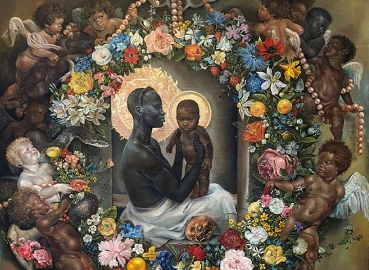
The commitment assumption: gender roles and expectations
Written by Dr Palesa Motjuwadi-Mbevhana
March, 19, 2021
“What will my husband say now that I have lost the baby?” I responded sincerely, “Well it’s not like you let the pregnancy go on purpose. You had a miscarriage, sisi, these things happen. It’s not your fault.” My attempts to console her was met with another shocking counter attack. “But what kind of woman will I be who can’t keep a pregnancy?” sigh… consultation room conversations are tough!
The assumption of masculine virility and feminine infertility is something I commonly come across in my practice. Couples would struggle to fall pregnant, and upon enquiry you’d find out the woman has had a child before but her husband hasn’t. Nevertheless, the primary consultation is directed at the female client. “I’m a man. She needs to be checked.”
This notion of male virility and female infertility is especially common within African cultures. It’s a bit similar to the belief that females determine the sex of a baby… contrary, only males can give the variant chromosome Y. I’m digressing, nevertheless, more often than not infertility is always the woman’s problem. In 2015 the reproductive biology endocrinology journal published a study that showed that Africa actually has the highest rate of male infertility worldwide with men accounting for 20-40% of infertility within infertile couples. [i]
This idea of masculinity being equated to virility is sponsored by women and men equally. I blame it on societal propaganda! To most women, a man is often perceived as a hyper-sexual, dominant being whose job is to be sexually ever-ready, make babies and to physically provide for the family. Ironically, these “primary baby-makers” suffer from premature ejaculation and erectile dysfunction which makes conceptions difficult[ii]. At this point it becomes clear that there are silenced conversations regarding male sexuality and unspoken reproductive expectations.
On the other hand, women are expected to be nurturing, “maternal” with a low sex drive/libido, able to produce and carry babies on request as well as being the sole carrier of the contraceptive burden. More women, however, are starting to identify with high sexual appetite instead of the assumed hypo-sexuality. And in light of fertility up to 43% of women actually experience a miscarriage [iii]. This miscarriage itself may not even determine future fertility.
These gender stereotypes may be significant contributors to the prevalence of sexual assault and rape culture in our society. If men are supposed to be constantly in heat, dominant with poor sexual control and women obliging and too coy to want sex it promotes the idea that rape is inevitable[iv]. Sex ceases to be a mutual display of love and shared desire especially if so called “pure” women can’t have a sexual appetite and “strong real” men must always want to have sex.
“What kind of woman would I be? You’d be the same woman you were before you fell pregnant. Your pregnancy didn’t make you a woman, nor does losing it make you any less of a woman. We’re more than what our genitals do”
[i] Agarwal A, Chyatte MR, Hamada A, Mulgund A. A unique view on male infertility around the globe. 2015. Reprod Biol Endocrinol. 12:27. Accessed on https://www.ncbi.nlm.nih.gov/pmc/articles/PMC4424520/
[ii] Crowdis M, Nasir S. Premature ejaculation. 2020. Accessed on https://www.ncbi.nlm.nih.gov/books/NBK546701/
[iii]Cohain , J.S., Buxbaum, R.E. & Mankuta, D. Spontaneous first trimester miscarriage rates per woman among parous women with 1 or more pregnancies of 24 weeks or more. BMC Pregnancy Childbirth 17, 437 (2017). https://doi.org/10.1186/s12884-017-1620-1
[iv] Davis R, Parks L , Somiji A. Together we can change norms and prevent sexual violence. 2017. Blog piece in prevention institute. https://www.preventioninstitute.org/blog/together-we-can-change-norms-prevent-sexual-violence-and-harassment
Ubusha Bami futhi yimi lo – My youth and this is me! ©